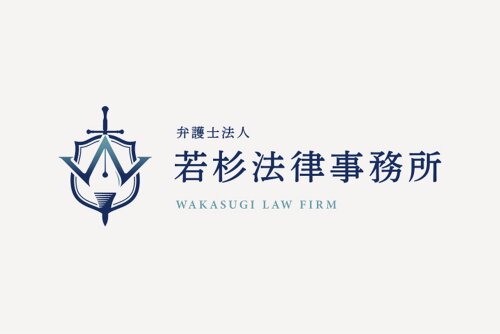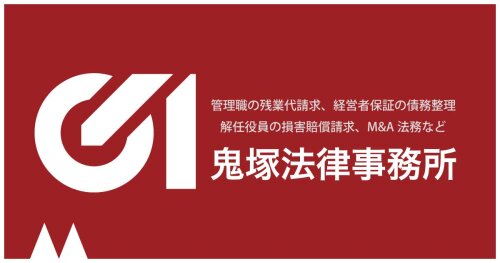Best International Trade Law Lawyers in Fukuoka
Share your needs with us, get contacted by law firms.
Free. Takes 2 min.
List of the best lawyers in Fukuoka, Japan
About International Trade Law in Fukuoka, Japan
International Trade Law in Fukuoka, Japan, focuses on the rules and regulations that govern the buying, selling, and movement of goods and services across national borders. As one of Japan's major port cities and a gateway to East Asia, Fukuoka plays a significant role in facilitating trade both with the rest of Japan and with international markets, particularly those in China, South Korea, and Southeast Asia. International Trade Law regulates customs procedures, tariffs, import-export restrictions, shipping documentation, trade disputes, and foreign investment, ensuring that businesses and individuals comply with both Japanese and international legal frameworks while engaging in cross-border trade.
Why You May Need a Lawyer
If you are involved in international business activities in Fukuoka, there are several reasons you might need legal assistance in International Trade Law. Navigating complex regulations, resolving customs issues, negotiating trade contracts, ensuring compliance with export controls, protecting your intellectual property abroad, or defending against trade-related disputes are common situations that often require professional legal advice. A lawyer specializing in International Trade Law can help you manage risks, avoid penalties, and streamline your business operations, whether you are starting a new export-import business, expanding overseas, or dealing with trade compliance challenges.
Local Laws Overview
Japan’s international trade regulations are set at the national level but are applied locally at entry and exit points such as Fukuoka’s ports and airport. Key aspects include the Foreign Exchange and Foreign Trade Act, which governs general trade controls, and the Customs Law, which dictates customs procedures, duties, import-export documentation, and inspections. For companies operating in Fukuoka, understanding local customs office procedures, port regulations, and specialized free trade zone rules is critical. Moreover, Fukuoka’s role as a regional economic hub means businesses interact with numerous bilateral and multilateral trade agreements that influence tariffs, quotas, and trade facilitation measures relevant to the Asia-Pacific region.
Frequently Asked Questions
What is International Trade Law?
International Trade Law refers to the legal rules and customs governing the exchange of goods, services, and technology between countries. It covers treaties, customs, regulations, and dispute resolution mechanisms relevant to global commerce.
How does International Trade Law apply in Fukuoka?
International Trade Law is enforced through national laws, but Fukuoka’s strategic location as a major port city means local enforcement and application are significant, especially with customs procedures, documentation, and trade compliance affecting goods passing through the region.
What types of businesses need to pay attention to International Trade Law in Fukuoka?
Any business involved in importing or exporting goods, trading services across borders, dealing with foreign partners, or moving dual-use technologies should be aware of International Trade Law requirements. This includes manufacturers, logistics companies, and trading firms.
How do customs procedures work in Fukuoka?
Customs procedures in Fukuoka are overseen by the regional Customs Office. Importers and exporters must submit proper documentation, declare goods accurately, pay applicable duties and taxes, and comply with inspection requirements to clear customs.
Are there free trade zones or special economic areas in Fukuoka?
Yes, Fukuoka features special economic zones and customs warehouses where some goods can be stored or processed with deferred customs duties, offering trade advantages for certain industries and products.
Can a foreign company operate in Fukuoka’s international trade sector?
Foreign companies are permitted to operate in Fukuoka, but they must comply with Japanese laws regarding company registration, customs, and any sector-specific foreign ownership restrictions or licensing requirements.
What common issues arise in international trade disputes?
Common issues include disagreements over contract terms, non-payment, product quality disputes, customs classification issues, and regulatory compliance failures. Disputes can be resolved through litigation or alternative dispute resolution like arbitration.
What penalties can arise from failing to comply with trade laws?
Non-compliance can result in fines, seizure of goods, loss of import-export privileges, and even criminal charges for serious violations such as smuggling or misdeclaration of cargo.
How can intellectual property rights be protected in cross-border trade?
Registering trademarks, patents, and copyrights in Japan and ensuring your trade documents clearly state IPR terms can help protect intellectual property. Customs authorities can assist with enforcement against counterfeit imports.
How do I stay updated on changes to trade laws relevant to Fukuoka?
Regularly consult with an experienced International Trade Law attorney, monitor official announcements from customs and trade agencies, and join trade associations for up-to-date information and guidance.
Additional Resources
Useful resources for International Trade Law in Fukuoka include the Fukuoka Customs Office, Japan External Trade Organization (JETRO), Fukuoka Chamber of Commerce and Industry, Ministry of Economy, Trade and Industry (METI), and local offices of the Japan Patent Office for intellectual property matters. Universities and business support centers in Fukuoka can also provide seminars and legal clinics relevant to international trade.
Next Steps
If you need legal assistance in International Trade Law in Fukuoka, consider the following actions. First, clearly define your trade-related issue or objective. Gather all relevant documentation, such as contracts, import-export records, and correspondence. Contact a qualified attorney with experience in international trade matters and local knowledge of Fukuoka’s ports and regulations. Schedule a consultation to receive tailored advice and develop a strategy for compliance or dispute resolution. Staying proactive and informed ensures your international business activities are successful and in full legal compliance.
Lawzana helps you find the best lawyers and law firms in Fukuoka through a curated and pre-screened list of qualified legal professionals. Our platform offers rankings and detailed profiles of attorneys and law firms, allowing you to compare based on practice areas, including International Trade Law, experience, and client feedback.
Each profile includes a description of the firm's areas of practice, client reviews, team members and partners, year of establishment, spoken languages, office locations, contact information, social media presence, and any published articles or resources. Most firms on our platform speak English and are experienced in both local and international legal matters.
Get a quote from top-rated law firms in Fukuoka, Japan — quickly, securely, and without unnecessary hassle.
Disclaimer:
The information provided on this page is for general informational purposes only and does not constitute legal advice. While we strive to ensure the accuracy and relevance of the content, legal information may change over time, and interpretations of the law can vary. You should always consult with a qualified legal professional for advice specific to your situation.
We disclaim all liability for actions taken or not taken based on the content of this page. If you believe any information is incorrect or outdated, please contact us, and we will review and update it where appropriate.














